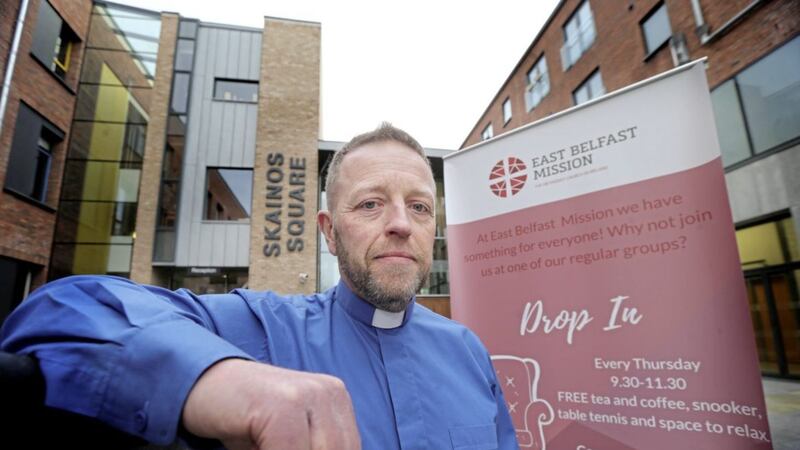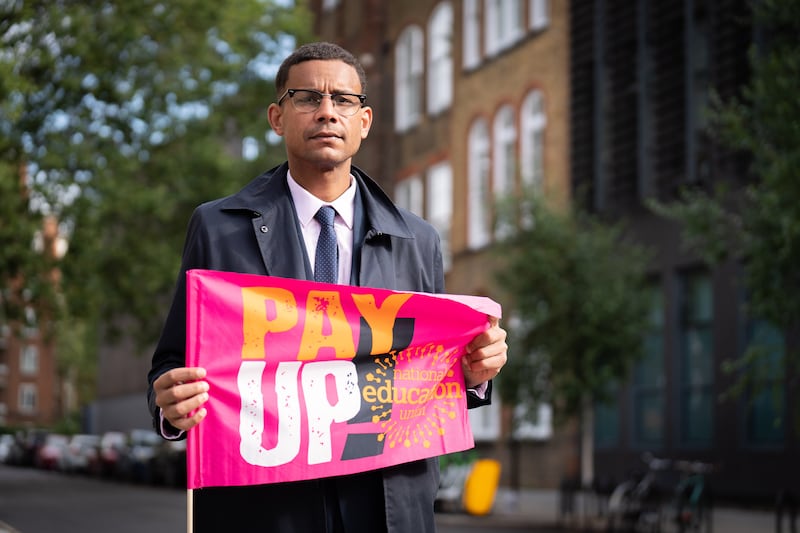A LEADING community organisation has said it cannot apply for key funding, including for Irish language and counselling services, because it is linked to a church.
East Belfast Mission (EBM) helps around 1,000 people a week and offers services including helping people get back into employment.
EBM has links to the Methodist Church but said the services it is seeking funding for, including ones from the Department of Health, are nothing to do with faith.
Under funding rules, faith organisations which apply for some public funds must set up separate governance structures.
Andrew Irvine, chief executive of EBM, said the issue came to a head during the pandemic when the organisation was told it could not apply for Covid funding.
He said EBM has also not been eligible to apply for funds to help provide free period products, community counselling and the promotion of the Irish language.
EBM runs high-profile Irish language classes which teach hundreds of learners, most from a unionist background.
Although the mission works in a predominantly unionist and loyalist area, the rules meant that it could not apply for funding for Queen Elizabeth's Platinum Jubilee celebrations.
"EBM and a number of other faith groups they are in contact with are extremely concerned about this," he said.
"The projects that we are seeking funding for do not advance faith. Our homelessness project does not promote faith. Our employability project does not promote faith. Our counsellors are not Christian counsellors.
"What they are asking us to do has serious implications in terms of administrative time and cost."
Mr Irvine said the issue primarily centres around funds distributed by Community Foundation NI.
He called on CFNI to alter its rules to make it easier for faith groups to apply for money.
"Any organisation can change its founding documents at an annual general meeting or an extraordinary general meeting," he said.
Mr Irvine said under the current rules EBM would have to "set up a separate limited company".
"It's a paperwork exercise but a costly one," he said.
"And it wouldn't be one-off. It would cost every year to have the company audited. You'd have to find trustees for it."
He added: "We don't want to get into a legal row with CFNI or the department. We would prefer to work with them to find a solution."
A spokesman for the Department of Health said: "Organisations that may be linked to a religious organisation, such as a church, are eligible to apply, provided the project is governed separately, and that the governance does not have reference to advancement of religion in their purposes.
"Organisations whose purposes include advancement of religion, as detailed on their governing document, if a registered charity, are not eligible to apply. Any activities/projects that advance religion are also not eligible.
"The Community Foundation does not exclude faith based groups and such organisations can apply to the fund, subject to the caveats outlined. We understand EBM have to date not applied to any of the DoH funds administered via CFNI. We would encourage the organisation to engage with CFNI for further guidance and clarity around eligibility and/or the broader application process."
A spokesperson for the Community Foundation NI said: "We recognise and welcome the role that faith groups have in supporting our community.
"The legally binding founding documents of the Community Foundation have limitations in our ability to directly fund groups that have a purpose to advance religion."








